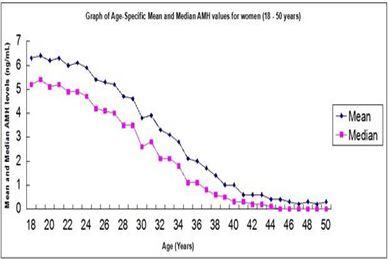Effective Ayurvedic management of Infertility due to low AMH in Elderly Women - Case Study
DOI:
https://doi.org/10.21760/jaims.8.4.35Keywords:
Infertility, AMH, Virechana, Matrabasti.Abstract
Pregnancy or the motherhood beyond the edge of reproductive age is referred as Pregnancy in “Elder gravida”. In the developing and developed countries age of marriage and there by child bearing are relatively late in life. Chances of pregnancy for healthy couples in their 20s and early 30s are around 1 in 4 women, 40s around 1 in 10women. Generally reproductive potential decreases as women get older, one of the common reasons is due to low AMH. Age is the single biggest factor affecting a women’s chance to conceive and to have a healthy baby and fertility can be expected to end 5 to 10 years before menopause. Risk of pregnancy complications increases with age. The risk of miscarriage and chromosomal abnormalities in the fetus increases from the age of 35years. Complications such as GDM, Placenta previa, Caesarian section and still birth are common among older women than younger women. According to Ayurveda, Infertility primarily refers to the biological inability of women to contribute to conception and also who is unable to carry pregnancy to full term. Ayurvedic management gives a new hope in women by strengthening body’s own self-healing and balancing mechanism without any intervention by outside or foreign substance to replace or correct the hormones in the body. Case Study: A female patient aged 38 years diagnosed as Primary Infertility due to low AMH treated with Virechana followed by Matrabasti and Shaman Chikitsa, after 3 months of treatment her AMH level increased and also patient got Conceived.
Downloads
References
Dutta D C. Textbook of Gynecology. Edition 8, New Delhi: Jaypee Brothers; 2020.p.28-31.
Dutta D C. Textbook of Gynecology. Edition 8, New Delhi: Jaypee Brothers; 2020.p.156-164.
Kapoorchand Hemalatha, Comprehensive treatise on Prasuti tantra, Chaukambha Bharati academy, Varanasi. 2020.p.68-70.
Dewailly D, Andersen CY, Balen A, Broekmans F, Dilavarni, Fanchin R, The physiology & clinical utility of Anti mullerian hormone in women, Human Reproduction update2014 May-Jun; (PubMed PMID :24430863)
Devet A, Laven JS, de Jong FH, Themmen AP, Fauser BC, Antimullerian hormone serum level: a putative marker for ovarian aging. Fertility and sterility. 2002 feb; (PubMed PMID: 11821097).
Steiner AZ, Pritchard D, Stanczyk FZ, Kesner JS, Meadows JW, Herring AH, Baird DD, Association between biomarkers of ovarian reserve and infertility Among older women of Reproductive age. JAMA 2017 OCT10; (Pubmed PMID:29049585).
Acharya YT. 8th ed. Varanasi: Chaukhambha Orientalia; 2005. Susruta Samhita of Acharya Dalhana, Chikitsa Sthana; p.539. Ch. 37, Ver. 125.
Muraleedharan A, Unnikrishnan P, Narayan P, Krishnarajabhatt HS. An Ayurvedic treatment protocol to improve anti-mullerian hormone: A prerequisite for assisted reproductive technique- A case report. Ayu. 2017 Jan-Jun;38(1-2):66-69. doi: 10.4103/ayu.AYU_167_17. PMID: 29861596; PMCID: PMC5954262.
Divya Sreenath J., Asitha H. (2021). Management of female infertility presenting with low AMH and AFC count - A Case Study. Journal of Ayurveda and Integrated Medical Sciences, 6(01), 359-366. https://doi.org/10.21760/jaims.v6i01.1237















